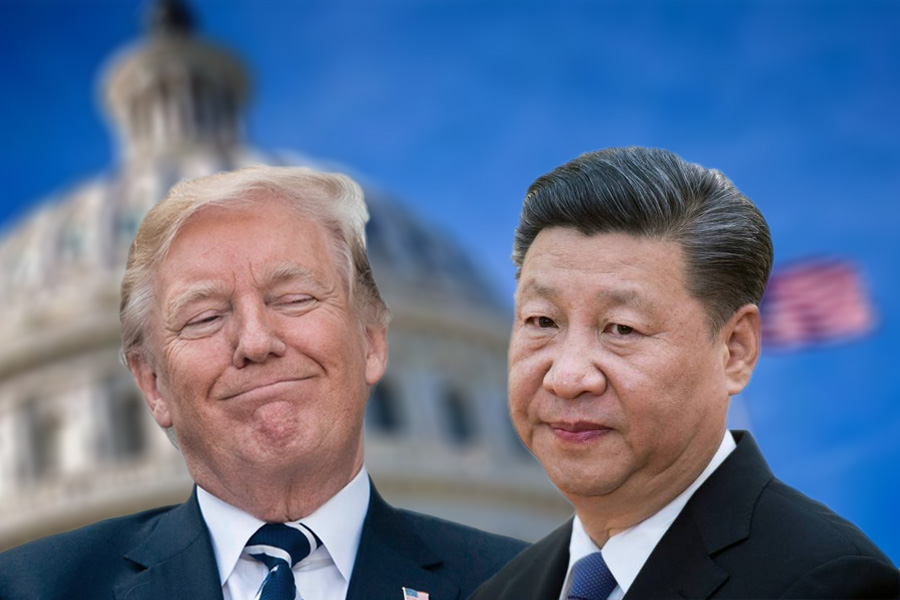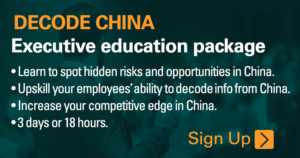◎ The telephone call between Mike Pompeo and Yang Jiechi corroborates our assessment of the Sino-U.S. trade talks and more.
Most observers believe that that the Sino-U.S. trade discussions in Beijing from May 3 to May 4 did not pan out well for both sides and no deal was reached. There are also worries that an all-out trade war would come to pass.
Based on our research, however, we believe that China and the U.S. had productive trade talks. Despite the lack of outward consensus on both sides, several signs have emerged since the conclusion of the talks which suggest that our initial assessment was correct.
The signs:
May 4:
- Speaking to reporters, President Donald Trump said: “I have great respect for President Xi [Jinping]. That’s why we’re being so nice. And we have a great relationship, but we have to bring fairness into trade between the US and China. And we’ll do it.” Trump added that the U.S. has settled on a date and venue for his meeting with North Korean leader Kim Jong Un, and said to expect “very, very good things.”
- Michael Pillsbury, director of the Center for Chinese Strategy at the Hudson Institute and author of “The Hundred-Year Marathon,” wrote in The Hill that Trump had won the first round in the Sino-U.S trade war. He wrote that the reason for secrecy on both sides was the need for Trump to give face to Xi Jinping due to ongoing North Korea negotiations and the “boldness” of the concessions which America is demanding of China. “If you consider the reverse image, it’s like a Chinese delegation of cabinet secretaries arriving in Washington and giving the U.S. two years to amend our Constitution and to give up our free-market economy,” Pillsbury wrote.
- In an internal memo (“Have resolute confidence in striving to resolve our troubles in a shorter period”) to its employees, Chinese telecommunications maker ZTE wrote of its seven-year ban from buying American technology and services: “However long the road, there is an endpoint, however long the night, there will be a conclusion, let us be steadfast and be full of hope to welcome the coming of dawn.”
May 5:
- Secretary of State Mike Pompeo and Chinese Communist Party Foreign Affairs Commission Office director Yang Jiechi spoke over the phone. The official statements issued by both sides carried several revealing points:
- Yang Jiechi said that “China-U.S. relations are at a crucial stage,” and both sides should “earnestly implement the consensus reached between Chinese president Xi Jinping and President Donald Trump.” Yang added that the two countries should “strengthen high-level bilateral exchanges those at all other levels, continue to communicate closely on economic and trade issues, respect each other’s core interests and major concerns, properly settle disputes and sensitive issues, maintain communication and coordination on major international and regional issues, and push forward bilateral ties along the right track.”
- The State Department’s statement read: “Secretary Pompeo and Politburo Member Yang affirmed the importance of a constructive, results-oriented bilateral relationship. The two sides also discussed global, regional, and bilateral issues of mutual concern. The two sides agreed on the need to address the threat that North Korea poses to regional stability. The Secretary and Politburo Member Yang also discussed preparations for senior-level U.S.-China engagements later this year.”
May 6:
China’s ZTE formally submitted a request to the U.S. Commerce Department to suspend a seven-year business ban.
Our take:
1. We wrote on May 4 that “the Trump administration probably already knows that importance of ‘face’ to the Chinese regime, and appears to be playing along with Beijing to facilitate the implementation of concessions.” Interestingly, Michael Pillsbury makes a similar argument.
2. The telephone call between Mike Pompeo and Yang Jiechi corroborates our assessment of the Sino-U.S. trade talks and more.
If the talks had broken down, Yang would not need to stress that both sides have to “earnestly implement the consensus” reached between Trump and Xi. We believe that Trump and Xi arrived at a “consensus” during the April 2017 summit in Florida. The “consensus” also explains why Trump has been noticeably treating Xi and China differently since the Florida meeting. Yang’s statement, in other words, is classic “ni dong de” (“you do know”), a Chinese expression which is somewhat akin to the phrase “inside baseball.”
We earlier analyzed that the CCP would never admit to making big concessions to the U.S., even if it did so. So Beijing would repackage all concessions as reform measures which it already plans to carry out, and CCP propaganda would claim that it was America that made concessions to China. Meanwhile, the Trump administration should play along with the CCP rhetoric to secure the concessions. Yang Jiechi’s call to “respect each other’s core interests and major concerns” and “properly settle disputes and sensitive issues” is likely a reminder to the Trump administration to keep up with the performance.
In the short term, both China and the U.S. have reason to be nice to each other. On the CCP side, getting America to halt or delay the trade war until its domestic economic and financial problems are brought under control is of paramount importance because it concerns regime survivability. Meanwhile, the U.S. needs China’s help in ensuring successful negotiations with North Korea. Previously, we wrote that Xi Jinping would push Kim Jong Un to denuclearize to win a bargaining chip to use in Sino-U.S. trade discussions.
3. ZTE’s internal memo and its request to the U.S. Commerce Department to have its ban suspended hints at good progress at the U.S.-China talks. The state-backed ZTE would otherwise not have the daring to make a request for reprieve.
Pending the implementation of concrete concessions, the Commerce Department could withhold the ZTE ban and place the company on strict “probation.” How the U.S. handles ZTE’s request would be a litmus test of the outcome of the Sino-U.S. trade talks.
What’s next:
1. China would announce that it is opening up its markets to a greater degree, implement intellectual property protection measures, and strictly audit companies (particularly the high-tech firms) that receive government subsidies as part of its “Made in China 2025” program.
2. To ensure that China implements its economic reforms and consolidate the results of the trade talks, the Trump administration may make high-profile moves to spotlight the CCP’s human rights violations.













